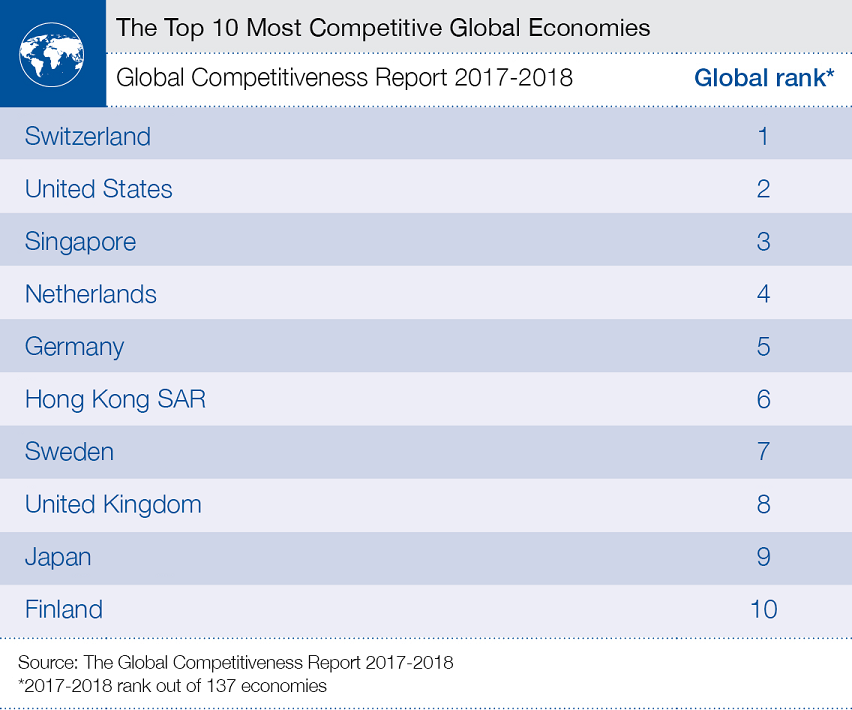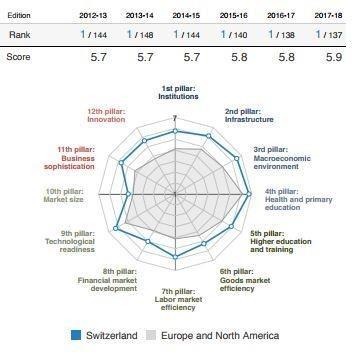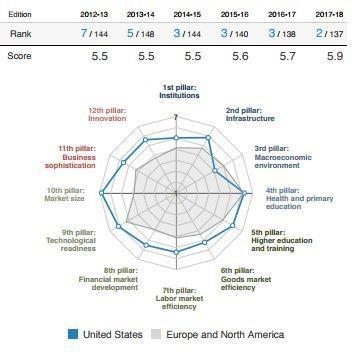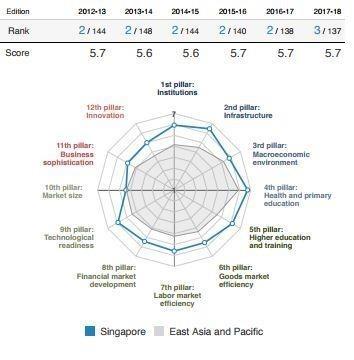by
Alex Gray*
However, we are living in a time of unprecedented change and uncertainty. Geopolitical headwinds are colliding with rapid technological change, creating a world where global leaders have to think long and hard about their political and economic policies. Continued growth is far from guaranteed.

The latest World Economic Forum Global Competitiveness Index ranks 137 economies by their ability to sustain inclusive growth. That’s growth that delivers positive change and benefits citizens and the environment. The index looks at 12 pillars of competitiveness including innovation, infrastructure and the macroeconomic environment. It ranks countries on how they score in each category.

Switzerland tops the overall ranking for the sixth year in a row, scoring highly on nearly every pillar of competitiveness. Its economy is resilient, its labour markets are strong and its people and businesses are good at absorbing new technologies. Swiss citizens benefit from high levels of public health and education, while Swiss businesses demonstrate high levels of sophistication and innovation.


The US has recorded its best ever performance this year, landing second place. That’s up from third place last year and seventh when the rankings began. However, its position is far from secure. While the world’s largest economy scores highly for efficiency and innovation, it doesn’t score so well in the macro-economic pillar. The US also performs poorly on health and primary education.

Singapore has slipped one place this year to third. Despite a strong performance across the board - scoring in the top three in many pillars - rising government debt has dragged down its macro-economic score. That said, Singapore’s transport infrastructure, product and labour markets, and financial sector are all highly efficient.
The rest of the top 10 is made up of five European countries (Netherlands, Germany, Sweden, Finland and the UK) along with Hong Kong SAR and Japan.
There may be trouble ahead
While the uptick in the world economy is cause for celebration, the latest Competitiveness Report has spotted some problems on the horizon.
It notes that, a decade after the financial crisis, the financial sector remains vulnerable. The increasing levels of private debt in emerging economies, and the growth of unregulated capital markets, are just two of the elements that worry the authors of the report.
While this year's index has seen some economies score highly for innovation, the benefits of this are not spread widely. Economies would do well to put more effort into increasing the readiness populations and businesses to adopt new technology, says the report.
Many economies also score well on their labour market flexibility, something which helps to drive economic growth. However, unless this is balanced with worker protection, not everyone will prosper.
The report also notes that the global economic recovery is built on unsteady foundations. That’s because it is being driven more by low interest rates than by fundamental drivers of growth.
“Economic growth is important for human development and well-being. Growth creates the resources needed for better education, health, and security, and for higher incomes,” concludes the report.
“Yet economic growth should not be an end in itself. It should contribute to human welfare, be rooted in political legitimacy, and be defined and measured based on a multidimensional notion of economic progress that includes values such as a broad-based distribution of economic gains, environmental sustainability, and intergenerational equity for young people and future generations.”
*Formative Content
**First published in www.weforum.org
**First published in www.weforum.org




 By: N. Peter Kramer
By: N. Peter Kramer
